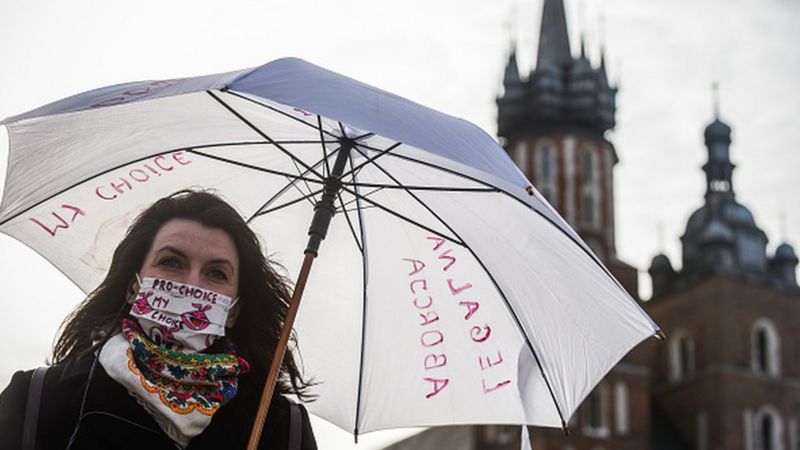Poland abortion: Top court to rule on almost total ban
Poland's constitutional court is due to issue a ruling that could lead to an almost total ban on abortion.
Poland's laws are already among the strictest in Europe, with abortion only allowed in cases of rape or incest, if the mother's health is at risk, or if the foetus is seriously compromised.
But the tribunal will decide whether a 1993 law allowing terminations in cases of foetal defects is constitutional.
Human rights groups have urged the country not to increase restrictions.
Almost all abortions carried out in Poland are carried out in cases where the foetus has severe disabilities - the exact circumstances the court is due to decide on.
The legal challenge was launched last year and is separate to a new abortion bill currently in parliament - also calling for an end to abortions in cases of irreversible damage to the foetus - which is backed by the ruling nationalist Law and Justice party.
A majority of the court's judges were nominated by the same party.
Polish sexual and reproductive health and rights activist Antonina Lewandowska told the BBC that the defence of the 1993 law was based on UN rules outlawing torture.
"It's inhuman, it's despicable honestly to make anyone carry a pregnancy to term, especially if the foetus is malformed, and 98% of legal abortions carried out in Poland are due to foetal malformations," she said.
Three international rights groups - Amnesty International, the Center for Reproductive Rights and Human Rights Watch - have said they will send independent monitors to the court ahead of the decision.
"The Constitutional Tribunal's upcoming proceedings take place in the context of repeated government attacks on women's rights and efforts to roll back reproductive rights, as well as legal and policy changes that have undermined the independence of the judiciary and rule of law in Poland," they said in a joint statement.
Previous proposals to restrict access to abortion under a citizen's bill but backed by many in the Law and Justice party were put forward in 2016, but the government backed down following mass street protests.
The current bill, which the party has also backed, emerged after an online petition.
https://www.bbc.com/news/world-europe-54642108





Post a Comment